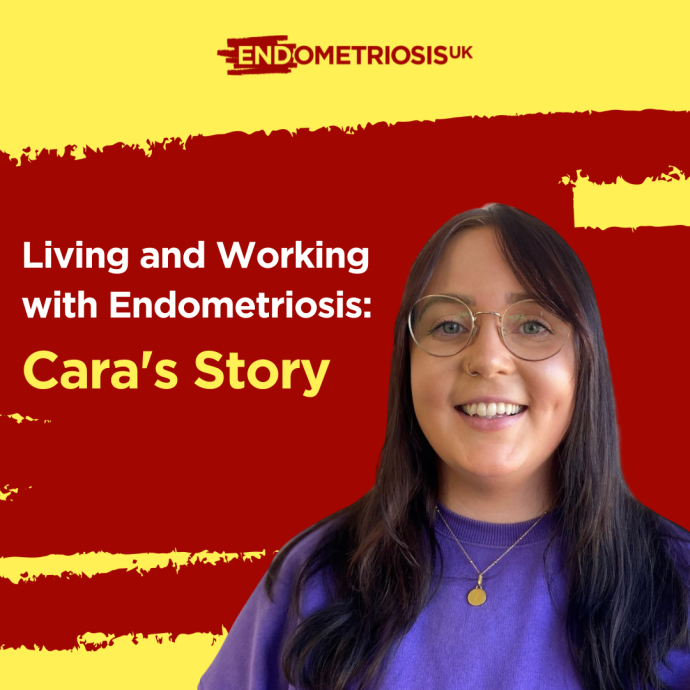On the other hand, I believe this should be the bare minimum for everyone in the workplace.”
Cara shares her experience of living and working with endometriosis and the importance of a supportive workplace.
I first started experiencing symptoms of Endometriosis when I was 16 years old. The painful, heavy, and irregular periods were a constant struggle. I was told it was normal and to take the pill, as many other young women still are today. It wasn’t until I turned 25 that I finally underwent a laparoscopy and received a diagnosis.
Before my diagnosis, I often felt isolated and misunderstood. The intense pain and heavy bleeding during my periods made me feel like the odd one out. By the age of 24, the pain became a daily challenge, even outside of my periods. This led to anxiety about leaving home, fearing a flare-up while out, and the embarrassment of hiding my condition.
The anxiety of facing intense pain while alone and outside the house has been the most challenging aspect. The unpredictable pains make it difficult to socialise or explore new places. This constant need to hide my struggles has profoundly impacted my mental health.
I’ve had to take time off work for surgeries and investigations. Adjusting my workload has been essential; sometimes, working from home is the only way to manage the pain and stay comfortable. Comfortable clothing and a hot water bottle can make a significant difference, sometimes allowing me to avoid taking a sick day. Thankfully, I work with amazing people. My managers have been incredibly supportive, accommodating workload adjustments, and offering a listening ear when needed. The wider business has also been brilliant, and I feel honoured that we are partnering with Endometriosis UK who are our Charity of the Year this year. This speaks volumes about the people at Ghyston, and I am immensely grateful to everyone who voted to support such a great charity.
Endometriosis is not widely understood, so there have been times when I've had to explain my condition and needs. I’ve also taken the initiative to educate colleagues. I appreciate their curiosity and willingness to learn and listen. Women's health deserves more attention and conversation. General awareness is key - taking the time to understand. Endometriosis has no cure, and it’s frustrating when people think they can dictate how to manage it. Listening without judgment and providing support leads to happier and more productive employees in the long run.
On one hand, I feel extremely fortunate for the supportive relationships I have with my colleagues. Open communication is a norm, and I am surrounded by understanding individuals. On the other hand, I believe this should be the bare minimum for everyone in the workplace. Sadly, many organisations still have a long way to go, and many women are not as lucky as I am. I don't take that for granted.
My advice to those struggling with endometriosis at work is to speak up when you can. Don’t be afraid to ask for help or adjustments. Raising awareness can make tough days easier, as the more people understand the condition, the more supportive they can be.
Thank you Cara for sharing your story.
Could your workplace do more to support those with endometriosis and other menstrual health conditions? Find out more about our Endometriosis Friendly Employer Scheme and free Menstrual Health at Work resources at the links below.
Endometriosis Friendly Employer Scheme Menstrual Health at Work
For practical tips on navigating endometriosis at work, starting conversations with your employer and more, check out our Endometriosis at Work Webinar.


